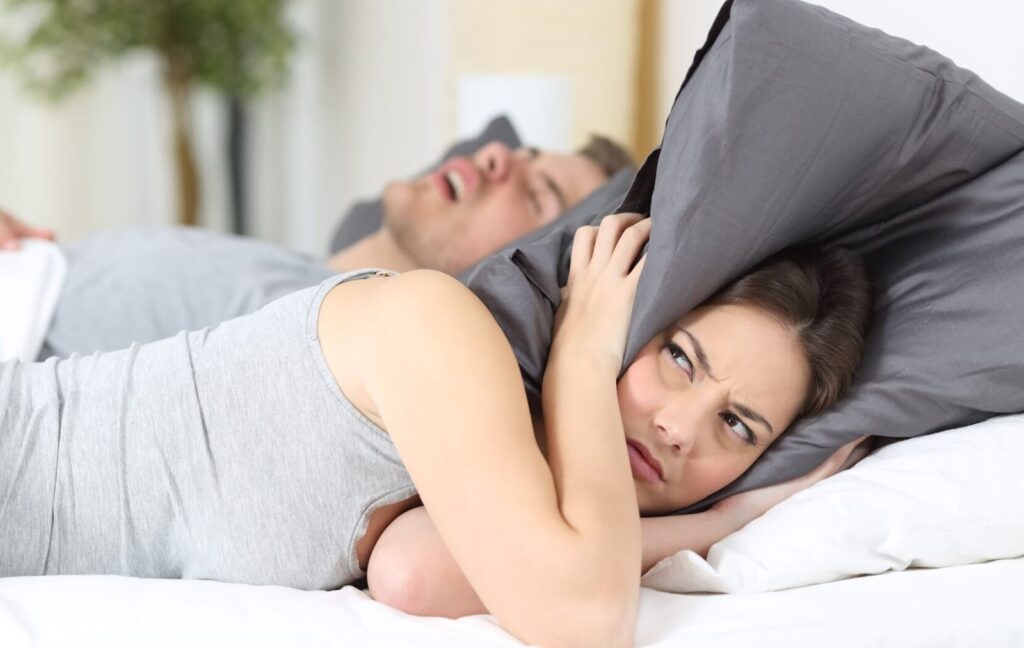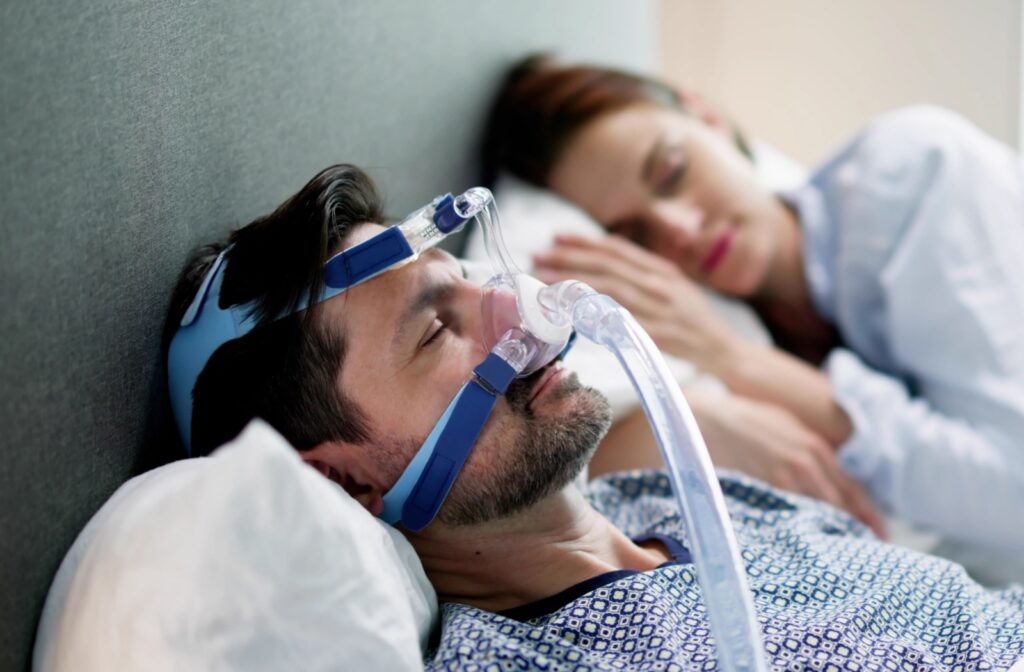Sleep apnea is a common yet serious disorder with significant implications for your health. If you or a family member has been diagnosed with sleep apnea, you might wonder if sleep apnea is hereditary and if you’re going to develop it too.
Research suggests there may be genetic links to certain types of sleep apnea, particularly obstructive sleep apnea (OSA). However, other factors, like lifestyle and your physical anatomy will also play major roles in whether you develop sleep apnea or not.
What Is Sleep Apnea?
Sleep apnea is a sleep disorder in which breathing repeatedly stops and starts during sleep. These pauses in breathing, also called apneas, typically last 10 to 30 seconds and can occur dozens or even hundreds of times during the night.
Types of Sleep Apnea
There are three main types of sleep apnea:
1. Obstructive Sleep Apnea (OSA)
- The most common type
- Caused by a blockage in the airway.
- This can occur when the tongue or soft palate collapses into the throat during sleep, impeding airflow.
2. Central Sleep Apnea (CSA)
- Occurs when the brain fails to send proper signals to the muscles responsible for breathing.
- Snoring is often absent with CSA.
3. Complex Sleep Apnea Syndrome
- A combination of OSA and CSA
- Often identified during CPAP (Continuous Positive Airway Pressure) treatment.
Why Sleep Apnea is a Serious Concern
If left untreated, sleep apnea significantly increases the risk of various health problems, including:
- High blood pressure
- Heart attack and stroke
- Mood disorders, including depression
- Fatigue-related incidents, such as car accidents
- Memory and concentration issues
Recognizing and addressing sleep apnea quickly can help you avoid these complications.
Signs You May Have Sleep Apnea

Many individuals with sleep apnea don’t realize they have it—often, symptoms are first noticed by a sleeping partner. Common symptoms include:
- Loud snoring followed by pauses in breathing
- Gasping or choking during sleep
- Daytime fatigue or excessive sleepiness
- Morning headaches
- Mood changes, such as irritability or depression
- Memory and concentration problems
If these symptoms sound familiar, speak with a healthcare professional promptly—you deserve a good night’s sleep.
Is Sleep Apnea Hereditary?
Research increasingly supports the idea that genetics may influence your likelihood of developing obstructive sleep apnea.
Genetic Factors Linked to OSA
Studies suggest that your genes may impact certain physical traits or processes that increase your risk of OSA, such as:
- Anatomy: The shape and size of your jaw, tongue, and throat can affect airflow during sleep.
- Fat distribution: Inherited patterns of fat storage, particularly around the neck, can narrow airways.
- Sleep patterns: Circadian rhythm and breathing patterns also have genetic links that may contribute to sleep disorders.
If a close relative has OSA, your risk of developing the condition may be significantly higher.
Central Sleep Apnea & Genetics
Unlike OSA, there doesn’t seem to be a link between sleep apnea and genetics. Central sleep apnea is more often linked to underlying medical conditions or the use of certain medications.
Sleep Apnea Risk Factors
Both genetic and non-genetic factors may contribute to the development of sleep apnea.
Risk Factors for OSA
- Physical Traits: A large neck, recessed chin, or large tonsils.
- Family history: Close relatives with OSA.
- Body weight: Higher body weight is often associated with OSA.
- Age and sex: OSA is more common in older adults and men.
Risk Factors for CSA
- Medical conditions like heart failure or kidney disease.
- The use of medications like opioids or certain muscle relaxants.
Managing Sleep Apnea
The good news? Sleep apnea can be managed effectively, providing relief from symptoms and reducing health risks. Here’s how:
CPAP Therapy
CPAP machines deliver a steady stream of air to keep your airway open during sleep. While effective, they’re not a cure and require consistent use.
Oral Appliance Therapy
Dentists trained in sleep apnea management can offer custom-made oral appliances. These devices reposition your jaw or hold your tongue forward to prevent airway obstruction, making them ideal for OSA patients.
Lifestyle Changes
For those with mild sleep apnea or as a complement to medical treatments, lifestyle modifications can make a big difference:
- Maintain a healthy weight—Losing just 10% of body weight can reduce symptoms.
- Sleep on your side to prevent airway collapse.
- Avoid alcohol or sedatives, which relax the throat muscles.
- Stick to a consistent sleep schedule for better overall sleep quality.
Other Therapies
Alternative PAP machines, such as BiPAP or APAP, and newer treatments like cNEP (continuous negative external pressure) are emerging as options for some patients.
How Shawnessy Dental Centre Can Help
Sleep apnea may have a hereditary link, but that doesn’t mean it’s untreatable. At Shawnessy Dental Centre our team is dedicated to helping you achieve restful, healthy sleep.
If you’re experiencing sleep apnea symptoms, or simply want to explore your options, schedule an appointment with us today. We’re here to help!


